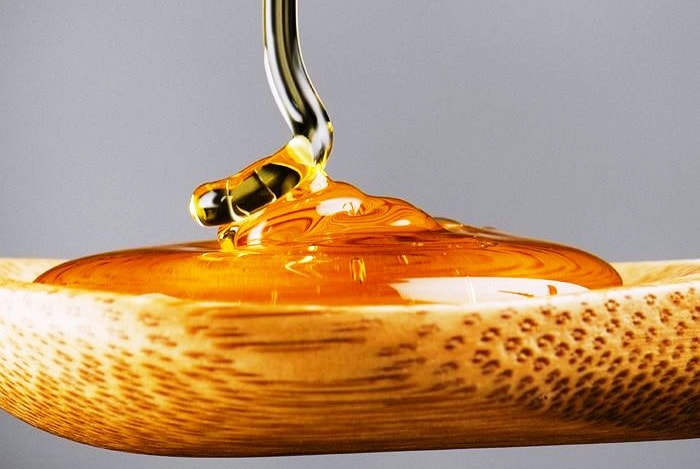
Written By: Sofia Layarda, MPH
Title: Master of Public Health
Alumni: University of California, Berkeley
Last Updated on:

Is eating less white sugar one of your New Year’s Resolutions? And are you curious about using natural sugar? If you do a lot of home baking, it may be one area where you’re considering substitutions. Besides its sweetening power, sugar actually has a role in the texture of baked goods, so a certain amount of it is required to ensure that your product turns out. The tips below explain which natural sugars will work for which kinds of baked goods.

Table of Contents
Agave nectar is derived from the agave plant. When substituting agave in place of white sugar, Chef Chris Anderson, a Boston-based personal chef to some celebrities, suggests that you use 25% less than the amount the recipe calls for. This is because agave nectar contains more fructose, which makes it taste sweeter than an equivalent amount of white sugar. Baked goods made with agave nectar may also brown sooner, so you may have to reduce the baking temperature by 25F. Agave nectar is viscous and can change the consistency of a batter; while there is no exact formula, Chef Anderson’s rule of thumb is to add 1 tablespoon of flour for every 1/4 cup of agave nectar used. According to Chef Anderson, agave nectar works best in recipes like muffins or chewy cookies, but does not work as well in those for crispy or caramelized products.
Like its name suggests, brown rice syrup is derived from brown rice that is cooked and fermented with enzymes. Because it is less sweet than regular sugar, you will have to use 25% to 30% more than the amount of sugar specified in the recipe. For every cup of brown rice syrup used, reduce the amount of liquid in the recipe by 25%. Brown rice syrup should be stored in the refrigerator; read the label just to be sure. Brown rice syrup works best with baked goods that are meant to be crispy, such as fruit crisps, bars, granola, and cookies.
Probably the alternative most familiar to many of us, honey is made by bees using nectar from flowers. Because it tastes sweeter than sugar, use 25% to 30% less than the amount of sugar in the recipe. Baking made with honey will also tend to brown sooner, so reduce the oven temperature by 25F and watch the baking time, as you may have to take the goodies out earlier.
Maple syrup is the sap of maple trees filtered and boiled until it reaches the desired consistency. Because of its distinctive taste, maple syrup will affect the flavor of the finished product more than regular sugar, which essentially sweetens without imparting a separate flavor. Use 25% to 30% less than the amount of sugar in the recipe, and you may need to reduce the amount of liquid by a couple of tablespoons.
Sucanat is short for “sugar cane natural.” It is sometimes described as pure dehydrated cane juice. (White sugar undergoes further processing to yield the tiny white crystals that we know). Chef Gilda Mulero, a personal chef, caterer, and cooking instructor in New York City, suggests substituting it in equal measure in any recipe calling for white sugar. The main issue with baking with Sucanat is that it’s brown in color due to its molasses content, which in turn affects the color (but not taste) of the finished product. For example, if you are making a lemon cake and it comes out brown, it can be confusing to your tasters – but if you are baking a chocolate cake or cookies it is not an issue.
Note that there is no clear evidence that less-processed sugar is healthier or better than white sugar. Some of these natural sweeteners may have retained more nutrients because of the way they are produced, but not in amounts significant enough to distinguish them nutritionally. Calorically, they are pretty much the same as white or cane sugar, providing just over 4 g sugar a teaspoon, or 16 calories. Whichever natural sugar alternative you choose to experiment with, keep in mind that sugar is best used in moderation since its main role is to sweeten, and it does not offer much nutritionally.
Alumni: University of California, Berkeley – Sofia believes in bringing back fun and pleasure into everyday eating. She loves cooking, and is constantly experimenting with ingredients, creating recipes and trying them out on family and friends. Her latest interest lies in finding realistic and practical ways of environmentally-friendly food/eating habits.
agave, baking, brown rice syrup, home cooking, honey, how to cook, maple syrup, sucanat, sugar